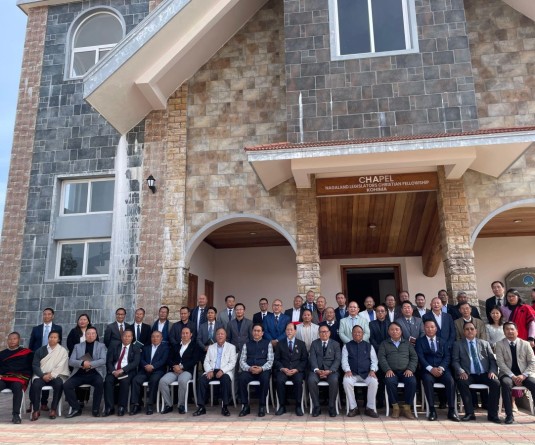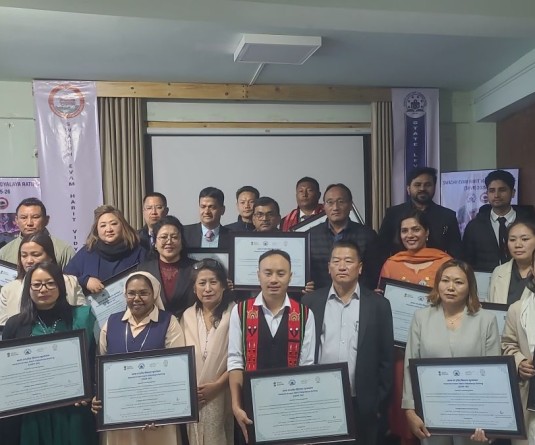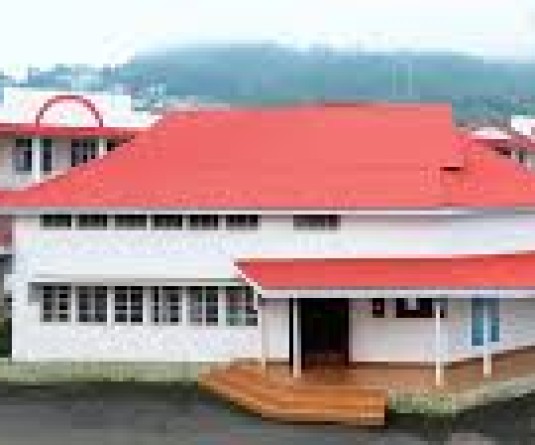
Morung express news
Dimapur | March 7
While not a commitment of the PDA’s 100-day pledge, the ruling NDPP’s Election Manifesto in 2018 featured an emphatic commitment to ensure disability rights. The party manifesto said it was “committed to realizing the full promise of the Rights of Persons with Disabilities (RPwD) Bill, 2016.”
Is the commitment being fulfilled by the present day Government? Despite enforcing the bill in the state, ground realities paint a different picture.
For instance, while the RPwD Act came into force in Nagaland on October 3, 2018 the implementation process has been lagging. As of now, there is only one District Disability Rehabilitation Centre (DDRC), attached to the Dimapur Civil Hospital in the entire state. Reportedly, it was revived way back in 2016 with the help of the then Chief Secretary, Medical and Social Welfare Departments.
Dr Imlitemsu Ozukum, MD (PMR), and In Charge of the DDRC Dimapur informed that the only such centre in the state is struggling with a lack of required therapists. Facing shortage of manpower, the centre has been forced to seek help from the district hospital’s ENT, Ophthalmology, Psychiatry and Orthopedic departments.
At present, the DDRC provides medical treatment, rehabilitation treatment (exercises), issues district certification every Thursday and health camps are provided to disabled groups. Dr Ozukum said there has been no fund from the government, but they have tied up with various national institutes and NGOs.
For proper functioning, a compact house is needed, said Dr Ozukum, while informing that at present he has four limb fitting technicians working with him.
“Things have been going on so far, even before implementation of the Act. We’re working on bringing more development for providing various facilities for the PwDs through the DDRC.”
“I’m very hopeful that better days are ahead with the implementation of the Act, and with the induction of the new State Commissioner for persons with disabilities,” said Dr Ozukum.
Under the RPwD Act 2016, the number of recognized disabilities has increased from 7 to 21, and imposes obligations to private establishments as well. It deals with various areas – education, employment, health, recreation, rehabilitation, social security and so on. Job reservation in the government sector has been increased to 4%. The Act also includes penal provisions for offences against people with disabilities and setting up of special courts.
Meanwhile, speaking to the Morung Express, State Commissioner for PwDs, Diethono Nakhro informed that proposal for two more DDRCs in Mon and Tuensang has been approved, and will be set up in the near future.
She added that the RPwD legislation would positively impact the lives of millions of people with disabilities across the country, if properly implemented and enforced.
“The first important step to be taken is to immediately notify the State Disability Rules,” Nakhro said.
While noting that “our state is very far behind the time schedule for doing this,” the Commissioner informed the draft rules are now in the final phase and “will hopefully be notified in some week’s time.”
On accessibility being fundamental to everything else Nakhro said, “The government has also taken this up seriously, a very positive thing moving forward.”
She assured her office will be working with the various departments and authorities, as well as the private sector, “to ensure that our environment becomes accessible for everyone.”
Nakhro meanwhile stated that lack of awareness and negative mindsets towards disability remain the biggest obstacles.
“When officials who are supposed to enforce the laws are not aware of them, the Act will end up as an empty document. This is why sensitization is so important,” Nakhro noted.
“Lack of disability budgeting is also a huge hurdle. Without adequate resources, we will not get anywhere” the Commissioner said.






